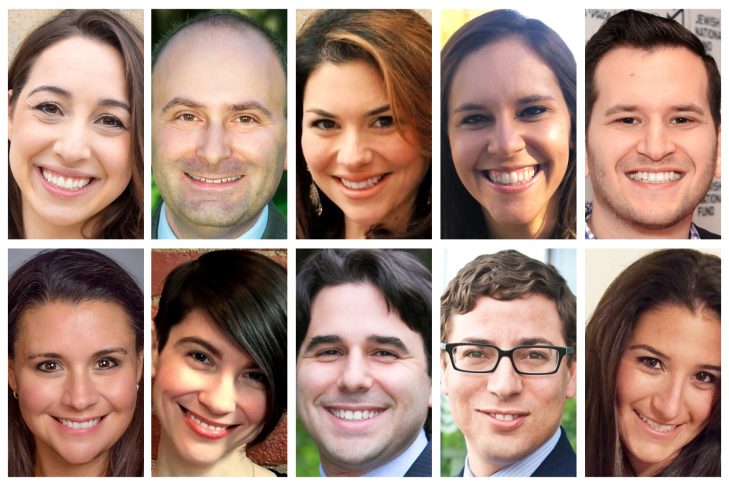This year’s 10 Chai in the Hub honorees are young, ambitious and passionate about continuing to invest in Jewish life in Boston and beyond.
Aliza Berger
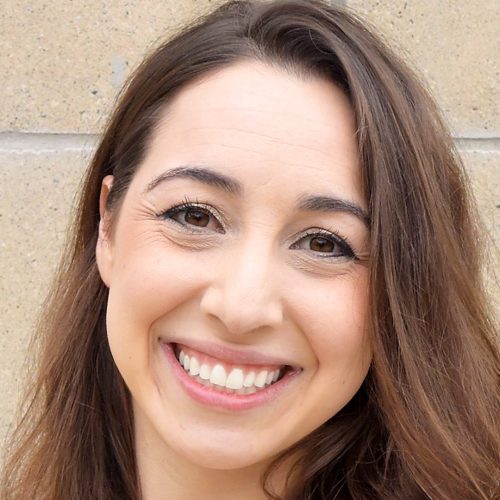
The Denver native, who is 29 and grew up in the Jewish Renewal movement, says she always knew she wanted to be a rabbi. She was recently reminded of her lifelong interest in the rabbinate when her parents found one of her fifth-grade school projects in which she proclaimed she wanted to be a rabbi. At Vanderbilt University, she brought her two worlds together and majored in music and Jewish studies.
One of Berger’s main tasks at Temple Emanuel is to work with teens and young adults. “Many young adults are moving around a lot and Judaism can be that stabilizing force,” she says. In the two years she’s been with Emanuel, she has built a community of 500 young adults for whom she creates programming and plans social events. For teens, she works toward providing “an oasis of community and friends. I want to connect teens with Jewish content and community that is really powerful and bigger than their grade level. That is very important to me.”
Given this flurry of activity, she finds that one of the main challenges of her job is that there aren’t enough hours in the day to do everything. “My biggest limiting factor is time,” she says.
As for being chosen as one of this year’s Chai in the Hub honorees, Berger says, “It feels like a particular blessing to be part of a vibrant young adult community and to be honored alongside so many incredible individuals.”
Danny Burkeman
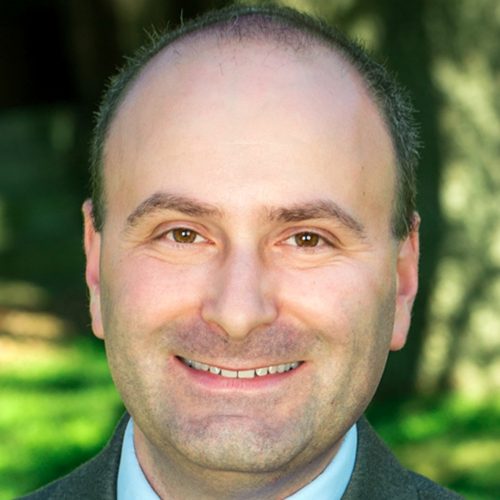
Burkeman also brings his gifts as a teacher to Shir Tikva. “I’m interested in how we can make Judaism relevant in the modern world,” he explains. “What can people connect with and learn from our tradition? Judaism has so many answers for the contemporary challenges we face.” This year Burkeman is excited to teach two particular courses. The first uses the tools of positive psychology within a Jewish framework; the goal is to emphasize the positive in life. Burkeman notes that Judaism allows for beginning the day with a moment of gratitude. He also teaches a course for interfaith parents and grandparents whose children are Jewish. “It’s an interfaith initiative that appeals to a wider circle of people surrounding our community,” he adds.
He’s similarly motivated by the idea of engaging with new technologies. An ongoing project along those lines is a weekly podcast called “Two Minutes of Torah.” He says: “I recognize that not everyone can sit down for half an hour to study the weekly Torah portion. But everyone has two minutes to get a sense of it.”
Jamie Darsa
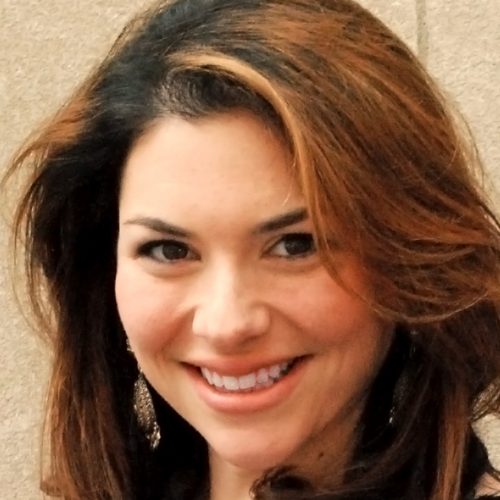
Darsa has found her calling at JCC Greater Boston, where she is the manager of PJ Library. PJ Library, funded by the Harold Grinspoon Foundation, CJP and individual gifts, provides free Jewish books to families with young children. Darsa’s job is extensive. She oversees book subscriptions for Greater Boston—a task that includes 97 towns. “We send books to over 8,500 children each month, which accounts for just over 40 percent of every Jewish child in the Boston area,” she says.
Before her role in PJ Library, Darsa’s first job at the JCC was to connect with families living in downtown Boston and offer them relevant programs. “I got to meet with new families and learn what they needed,” she says. Anticipating the Jewish community’s needs is the cornerstone of Darsa’s career and ambitions. “There is such an opportunity in the Jewish community to stay relevant and make an impact,” she says. “The way that people identify with the Jewish community is changing, and that is exciting. It shows we’re a healthy community looking to be relevant to many different people.”
Darsa is similarly grateful for her colleagues at the Grinspoon Foundation, CJP and the JCC. She notes that “when we can find natural moments where we are aligned, we’re creating a stronger community for people to want to be part of.”
Joanna Feldman
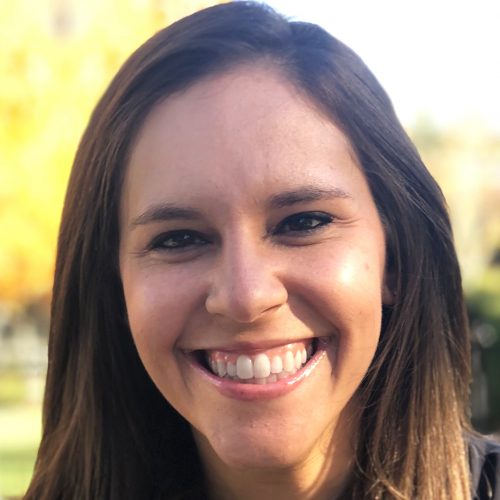
Her work in Gann Academy’s development office inspired her to expand her love of all things Jewish. While at Gann she also became involved in CJP. “I found a deeper understanding of who I was through Gann and CJP,” Feldman says. “At Gann, I have access to so many brilliant people. I feel like I’m getting an education in Jewish life and community even as an employee.” One of her innovations at Gann has been to build an online network for Gann alumni, which enables them to interact with one another.
She has also carved out a significant leadership role at CJP, which started with LEADS, the organization’s young adult social program. She says participating in LEADS introduced her to CJP’s work and sparked an ongoing interest in the organization. She has gone on to become a leader in the LEADS program and participate in the Dewey Stone Kadimah Leadership Program. She also staffed a Birthright trip last year for CJP, where she says she met a new group of people. Bringing young adults to Israel who were not connected to CJP or Israel was a powerful experience for her.
Of her strong connection to CJP, Feldman says: “I learned so much more of what CJP does. Things have changed for me in a way that I always knew were there. These have been stepping stones to get to this point in my life.”
Gali Gordon
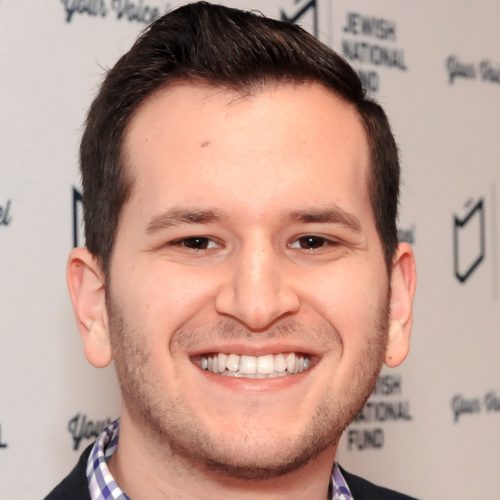
Gordon, also a graduate of Gann Academy, was inspired to attend the school after he saw his older sister enjoyed her time at Gann. “Gann set me up for a life journey in which I love learning and yiddishkeit,” he says. “It also set me up for going to Brandeis University.” At Brandeis, Gordon majored in Near Eastern and Judaic studies. Inspired by his Spanish teacher at Gann, he spent a semester of college in Buenos Aires. “Buenos Aires has the seventh-largest Jewish community in the world,” he says. “I knew I could always go to Israel, but this was something new to experience. It was a challenge to immerse myself in the culture. Buenos Aires and Israel are places in which I feel comfortable. I blend in.”
At JNF, Gordon reimagined the organization’s young leadership—a program he built up after 10 years of dormancy. He also takes student leaders who are not Jewish to Israel to experience the country firsthand. He brings Tu BiShvat programming to the classrooms of area day schools and Hebrew schools. “I’m so proud to work for a historic organization that is 118 years old,” he says.
Gordon anticipates that his love of Israel will always have a prominent role in his life both professionally and personally. “I love being a part of our vibrant Jewish life here in Boston,” he says. “I love being a connector, whether it’s through my work or at the Shabbat dinner table. I love helping people activate their passion for Israel.”
Rebecca Lurie
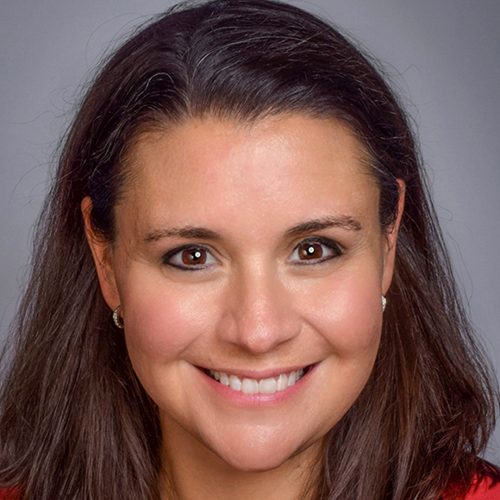
of Barnard College and Jewish Theological Seminary, Lurie is also a Schechter alumna. The 39-year-old, who came to her position with a strong background in business, recalls the moment she first realized she wanted to make the transition to a career in Jewish education. “It was November of 2015,” she says. “My daughter attended the school, and I was on the Schechter board. The school was going through transition for a head of school, and I realized I wanted to talk to somebody about doing this job.”
At the time, Lurie had been working in human resources strategy for Staples. She quickly realized that her expertise in business could contribute beneficially to Schechter’s educational goals. “I could not imagine doing this job [as head of school] without my Staples experience,” she says. “I gained so many skills in management and learned what it takes to have a high-performing management organization.”
Lurie says her beginning at Schechter was a “surreal” experience. Some of the teachers from her years as a Schechter student were still teaching at the school. What she initially learned in her first year was that teaching was a difficult, highly skilled job. “I have been humbled by how hard it is to be an effective teacher,” she says. “When I think about creating an amazing lesson and knowing what every student needs, it looks to be an impossible task. I have such admiration for teachers.”
Lurie also learned that hiring great teachers was the only way to have an effective school. As for her own background, she says she is very clear “about what I know and what I don’t know. I surround myself with people who can complement my deficiencies.”
In the parlance of business writer Jim Collins, Lurie has a “Big Hairy Audacious Goal” for Schechter. “I want our school to be so compelling that families choose to settle in Boston because of SSDS,” she says. “That’s my bar, and it means we’re doing transformational things, not just tweaks. We’re reimagining Jewish education.”
Hadassah Margolis
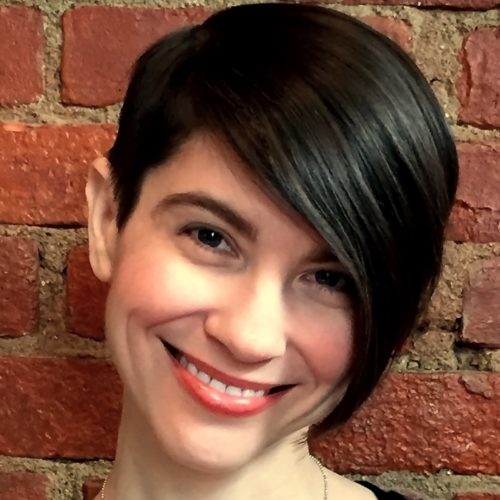
Margolis comes to her interest in spirituality naturally. Raised in Brookline, she grew up in a Conservative Jewish family. She is a third-generation member of Kehillath Israel in Brookline and a Solomon Schechter Day School and Maimonides School graduate. Her father was head of Boston’s Bureau of Jewish Education, and her mother worked at SSDS in the ‘90s. At Brandeis University, Margolis studied English and film and went into television documentary production after college. She found that her Judaics background, where she learned to take a piece of Talmud and dissect it, was helpful in her work in documentaries. At the same time, she developed an interest in psychology that prompted her to make a career change and get a master’s degree in social work.
She expanded her work in psychology and spirituality after seeing Kitty Dukakis speak at a Ruderman Synagogue Inclusion Project event. She approached the former first lady of Massachusetts about piloting a program in spirituality and mental health for synagogues. They worked together to launch a five-week program last July, which quickly sold out. In the fall, Margolis led another five-week group at Temple Emeth in Brookline.
In addition to her groundbreaking work in spirituality and mental health, Margolis is also the founder of the Brookline Social Action Fair, known as Inspo:Expo. “Inspo,” short for “inspiration,” is modeled on a science fair and brings volunteers and nonprofits together to talk about their projects. Margolis says, “It’s a hyper-local way to meet people and realize there is good happening in the world.”
Larry Tobin
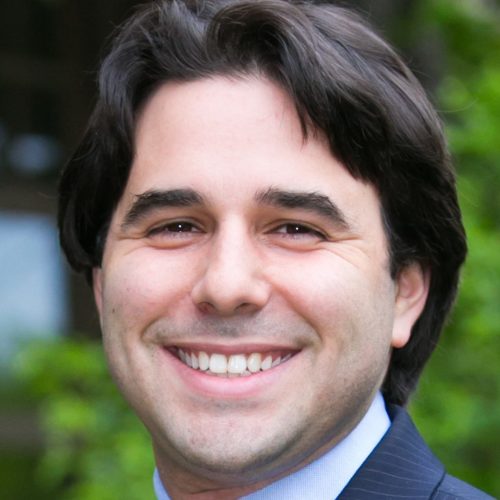
Tobin grew up in Needham and still lives and works in the community. He went to The Rashi School, Boston University Academy for high school and then to Boston University. He says both his parents and his education “are fundamental to who I am. My dad is a rabbi and fundraiser for the Jewish community, and education and tzedakah (charity) were a prime focus for my parents.”
Tobin’s communal Jewish involvement began in college when he interned for CJP. After graduation, he returned to the organization as a development officer for over a decade. “During that time, I learned how impactful CJP was and realized the central role it plays,” he says. “Everything I learned professionally was from CJP. The Shapiro Foundation could not do the work we do in Israel or the Jewish community without CJP as a core partner.”
To that end, The Shapiro Foundation has also been a key partner with Jewish Family Service of Metrowest in helping to resettle Syrian refugees. Due to the current administration’s limits on immigration and refugees to the United States, much of the foundation’s work in that arena has shifted to Canada, Greece, Israel and Bangladesh. Tobin notes: “In 2018 Canada took in the most refugees in its history and in the world. They largely used the model we developed in Framingham, where eight synagogues took responsibility and privately sponsored Syrian refugee families.”
In Israel, Tobin explains the foundation is actively involved in helping the 33,000 asylum seekers who are from Eritrea and Darfur. It has funded preschool classes for refugee children, legal aid for the refugees and continues to work behind the scenes. “The goal is to have a good outcome for Israel and a humanitarian outcome for the refugees,” says Tobin.
As for the future, Tobin notes, “I’ve always been ready to serve the Jewish community, and I made great lifelong relationships at CJP to do that.”
Nathan Vaughan
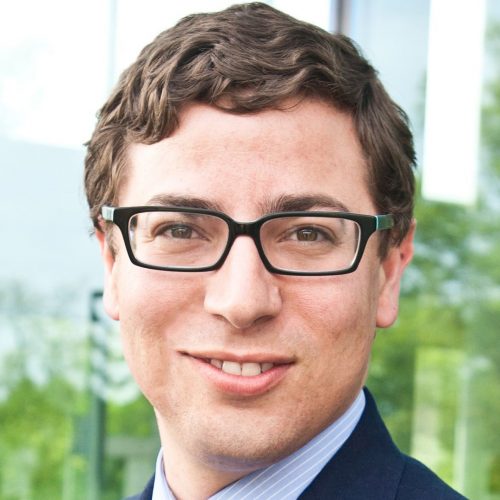
Before he came to his current job at 2Life Communities (formerly Jewish Community Housing for the Elderly), Vaughan was an interim executive director at Clark University Hillel and worked for Jewish Big Brothers Big Sisters of Greater Boston. At 2Life Communities he is a major gifts officer and describes his job as “rewarding. I spend time with individuals and companies that want to make a difference for older adults with the lowest incomes.”
In addition to his role at 2Life Communities, he is a lay leader in the young adult arm of the American Jewish Joint Distribution Committee (JDC). He has traveled with the JDC to Europe and observed the work they do. “We can learn from other communities abroad,” Vaughan says. He’s also an active member of Kehillath Israel in Brookline. “I’m committed to the synagogue and the role that it can play in Jewish life in the 21st century,” he says. “I’m also very interested in driving revenue to the synagogue so it can be self-sustaining and not reliant on membership dues.”
The synagogue was an essential part of Vaughan’s childhood. He grew up in an interfaith family and remembers how important his Jewish identity was to his Jewish mother. “Much of our family life was oriented around being Jewish,” he explains. “I grew up in southern Kentucky and we bought a condo in Nashville to be closer to the synagogue there. It was a priority in my life.”
Vaughan says people frequently ask him if he will go to rabbinical school. “My answer,” he says, “is that leadership comes in many forms. Rabbinic leadership is only one part of it. Part of the challenge facing the American Jewish community is that we invest so much time in rabbinic leadership [that] we’re lacking in other areas. That is where my passion for nonprofit work comes from. I’m on a mission to help people reinvent what it means to be Jewish in America.”
Erica Weinstein
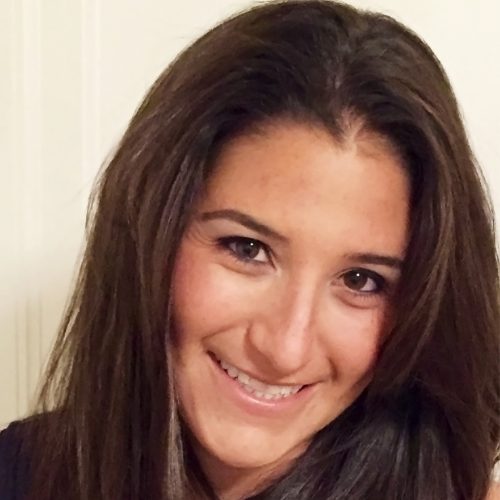
Weinstein, 33, looks back on her years at Siagel as formative to her career. But after seven years she decided to leap into events planning on her own and founded Erica Paige Events and Parties. She has been in business for three years and helps clients plan b’nei mitzvot, weddings, corporate events and nonprofit programs.
While at Siagel she became involved with the Anti-Defamation League at the suggestion of a colleague. “I was hooked on her stories about the speakers she heard and the issues she was working on at the Glass Leadership Institute,” she says. Weinstein eventually joined the institute and soon after became co-chair of the young leadership board. Last May, the ADL recognized her nationally with the Daniel Ginsberg Leadership Award. The annual award recognizes three outstanding young ADL leaders.
Weinstein sees the ADL as more relevant than ever given the current civil rights climate. “It’s a place where I love to spend my time and share the organization’s mission,” she says. “ADL has enabled me to use my skills and learn from people. It’s a place where I’m not the expert, and that’s a new balance for me.”
Last year Weinstein went on a CJP Project Inspire trip to Kenya. “It exposed me to a whole new world, and I gained insight into how Israel is helping developing nations,” she says. “I got to see firsthand how Israel is playing a major role in Kenya’s development.”
The Chai in the Hub honorees will be fêted at the Royal Sonesta Hotel on Saturday, Feb. 9. Lior Raz, co-creator and star of “Fauda,” will keynote the event. While it is sold out, you can add your name to the waitlist by emailing Jeremy at JeremyB@cjp.org. Find more information here.


